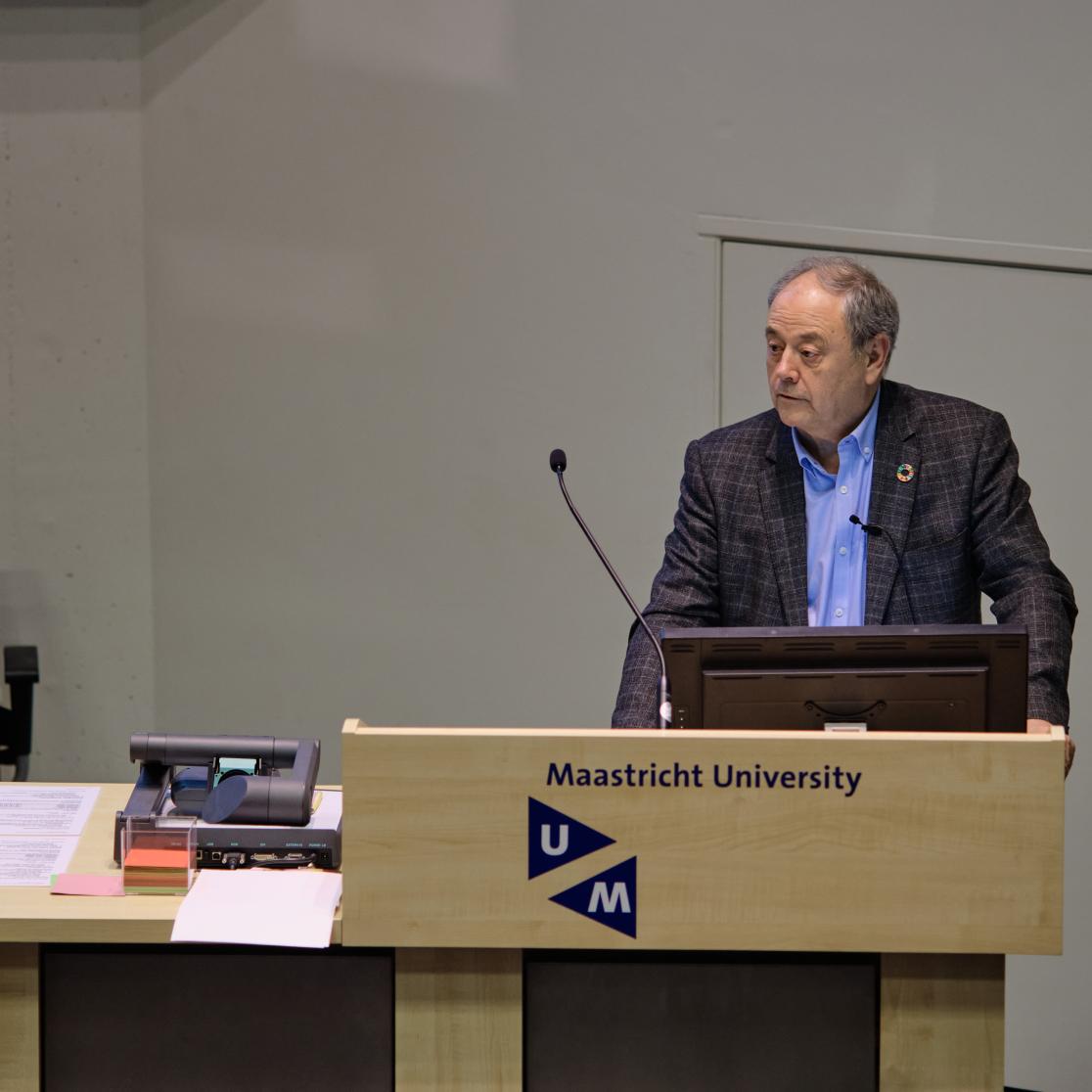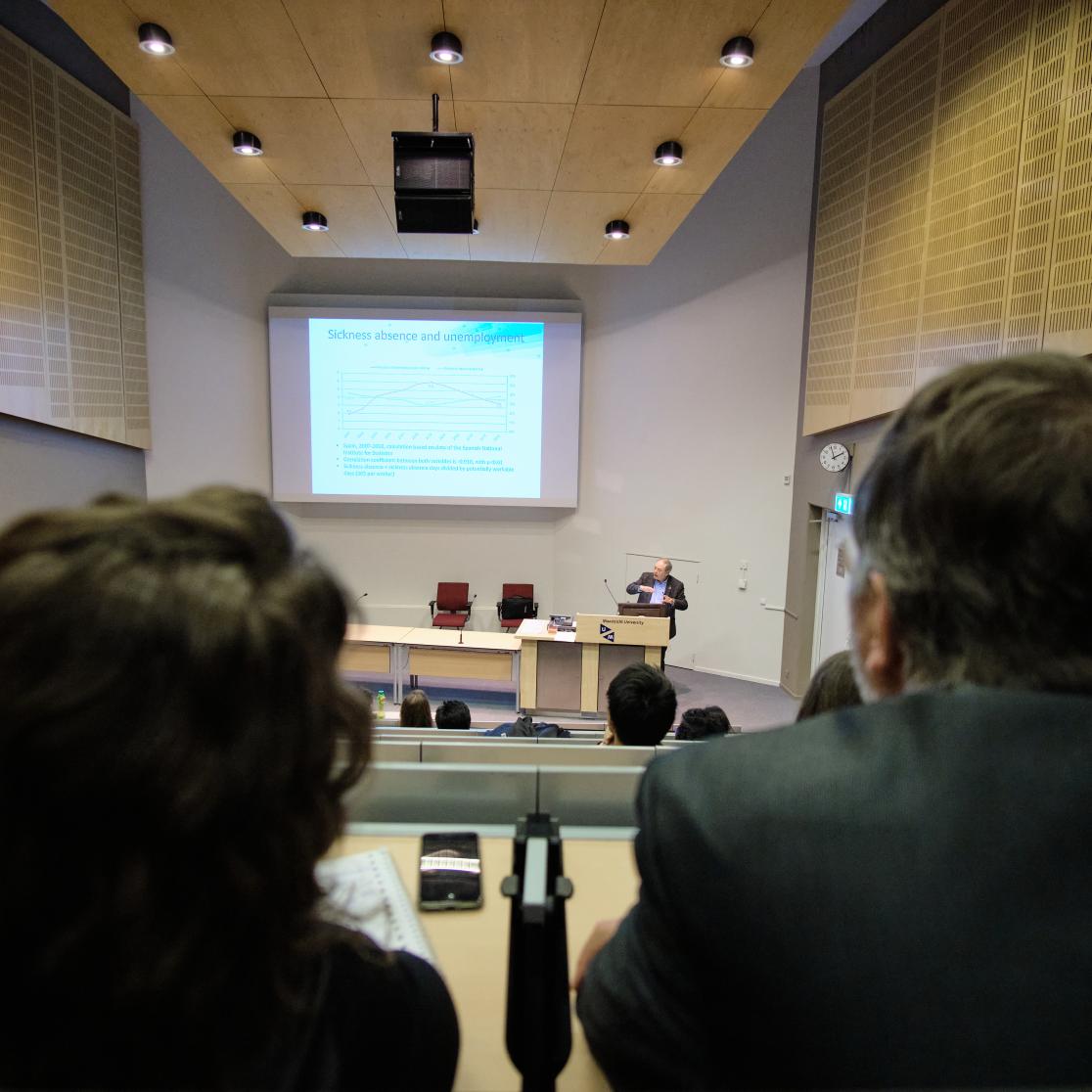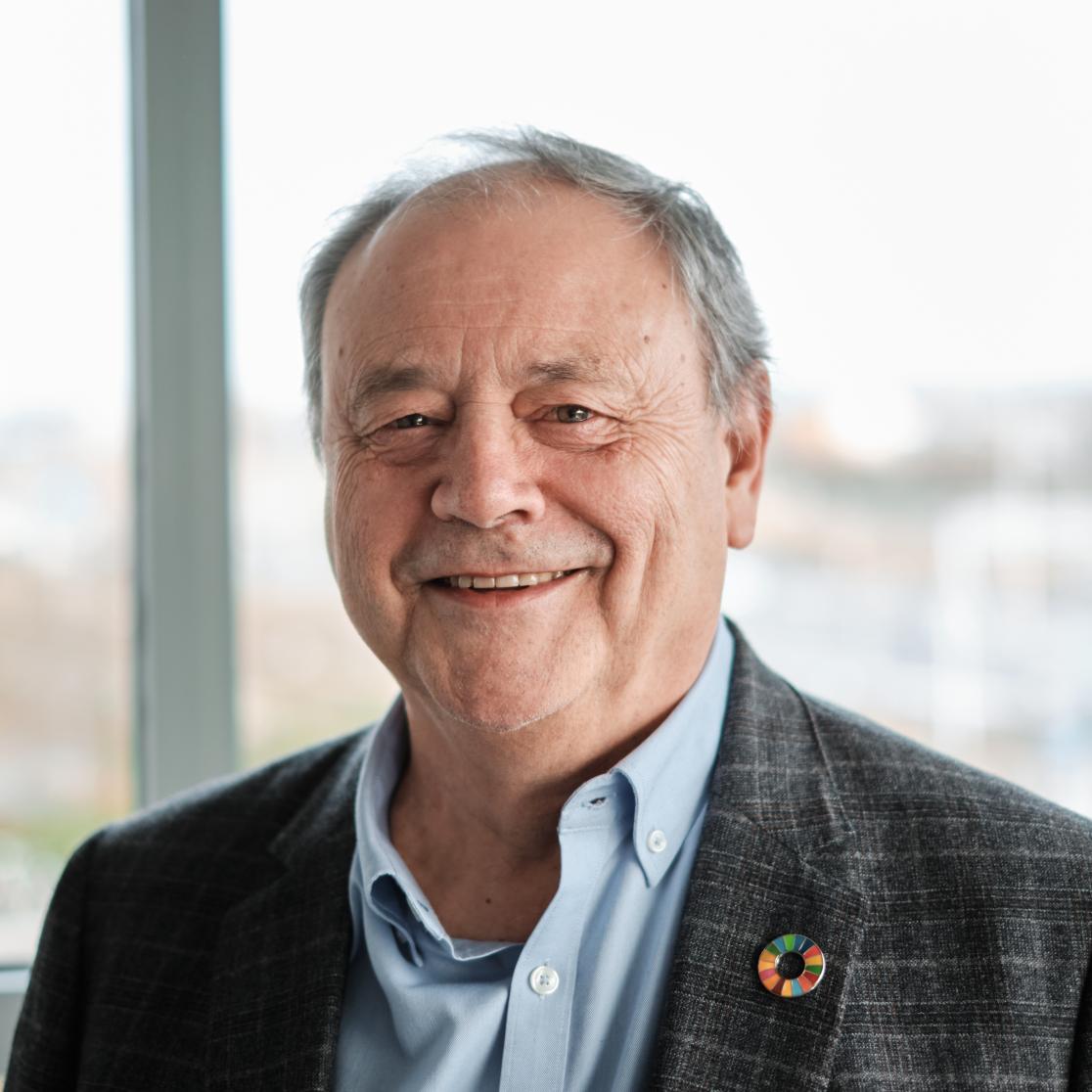Professor José M. Peiró receives honorary doctorate and speaks at Maastricht University
Professor José M. Peiró visited Maastricht University, to speak, meet with colleagues, and of course receive his honorary doctorate.
10 years ago, Peiró started his cooperation with Maastricht University as a visiting Professor at the School of Business and Economics, working of the topic of trust in organisations. He was invited by the late Professor Robert A. Roe [SBE], who was also connected to Professor Fred Zijlstra, establishing the link with the Faculty of Psychology and Neuroscience.
Watch this video for an introduction to Peiró and his work.
Climate and culture
Climate and culture within organisations is one of the topics Peiró’s work focusses on. Has he noticed much difference between Maastricht University and the University of Valencia? “Nowadays universities are very international and cooperative, this makes it so that we share an academic culture.” But there are differences. “Sometimes I smile when Dutch people say they are flexible. They are, but in a very different way than people in Spain. Punctuality and the concept of time comes to mind”. The way workdays and meetings are arranged also differs, from strict to loose. “When you work together, these things surface, but in general we share the same culture.” These similarities show in the interest in research, education, administrative work and being accountable for the work that is being done.
The happy worker
Peiró gave a lecture at the Faculty of Psychology and Neuroscience about whether happy workers are more productive. So, we asked him, are you a happy worker? “That of course depends on how you define happy”. Wellbeing is defined by several factors. Peiró talks about the difference between hedonic and eudemonic happiness. Hedonic happiness is achieved by the avoidance of pain and seeking of pleasure. Eudemonic happiness is an internal achievement, being happy by living well and growing as a person. Eudemonic happiness requires you to sometimes go through discomfort or pain to achieve that happiness. Every worker needs to find a balance between the two. “I have been able to find a balance and have noticed that I’m the happiest when I’m developing myself and contributing to the development of others”. Peiró says that is the great benefit of his job as professor is that he is always in contact with young people and can be a positive influence on their development. “In turn they stimulate us to grow, do more research, and become better teachers and researchers”.

International Joint Master of Research in Work and Organizational Psychology
Maastricht University, Leuphana University, and the University of Valencia have teamed up to create the International Joint Master of Research in Work and Organisational Psychology. “We’re cooperating closely so that the transition between the universities will be seamless. That way we can each contribute our own specialties to the programme”.
This programme is dedicated to training students to becoming scientist-innovators. Work and Organisational Psychology is an applied field of psychology. “This does not mean that we only take fundamental research and apply it. No, we do applied research, that aims to help employees and organisations. This means that our students have to become researchers, but also, from the start, understand the needs of the society, where their results will have effect”. A scientist-innovator does not only find new knowledge but knows how to implement it in society.

Honorary Doctorate
When Peiró entered the academic world, his supervisor told him that receiving your doctorate was the highest level to achieve in your career. “When I got my doctorate, several decades ago, I felt that I had achieved that highest level, in terms of recognition. Now I’m receiving this doctorate from a university and my colleagues in that university. They have decided that my work over the years deserves recognition. In my value-scale, it is probably the highest honour that I can receive. It is a confirmation of what I’ve been trying to do during my entire career.” Peiró says he understands it’s not a static recognition. “This is a stimulus for me to keep earning this praise”.

Also read
-
Dongning Ren awarded ERC grant for her research proposal on ostracism.
FPN colleague Dr. Dongning Ren was awarded a highly competitive ERC grant for her project: Using a principled causal approach for causal queries: the Ostracism Causal Project.

-

-
Most prestigious European grant to two UM scientists
Two Maastricht University professors are to receive the most prestigious European research grant for individual researchers: an ERC Advanced Grant, worth over €2.5 million. They are Lorenzo Moroni (MERLN) and Alexander Sack (FPN).
